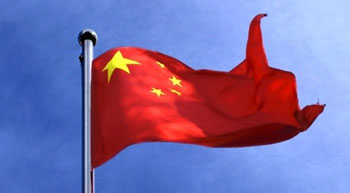By Ma Zheng, Liu Xiuling
TOKYO, June 8 (Xinhua) -- "The settlement between Mitsubishi Materials and forced WWII Chinese laborers is worth being written into textbooks as it helps the Japanese society face up to history," Lin Boyao, an overseas Chinese, who has been championing the campaign for the rights of the WWII Chinese laborers said in a recent interview with Xinhua.
Hikaru Kimura, senior executive officer of Mitsubishi Materials Corp. signed the deal on June 1, with three Chinese nationals on behalf of the thousands of wartime Chinese forced to work in labor camps in Japan during World War II, and under the agreement Mitsubishi Materials said it would offer an official apology for its heinous actions and compensate each victim 100,000 yuan (15,000 U.S. dollars).
The company also agreed to continue to seek a comprehensive and permanent solution with all of the former laborers and their families and pledged to build a memorial to honor the victims.
Lin said it's an advancement as major Japanese companies like Mitsubishi Materials acknowledged its wartime atrocities and apologized to the victims.
The victims were part of about 39,000 Chinese who were forcibly brought to Japan during WWII to address a growing labor shortage in areas such as coal mining and construction.
Because of rigors of labor, squalid conditions and lack of basic essentials like food and water, almost 7,000 innocent Chinese nationals died during their hellish internment.
Starting from the 1990s, Chinese survivors of forced laborers and their families filed a series of lawsuits in the Japanese court, seeking apologies and compensation from the Japanese government and related companies, but their claims were all rejected by the Supreme Court in Japan.
In 2013, five Chinese civic groups representing aging victims united to begin negotiating with the Tokyo-based company and reached the agreement finally.
This is not the first settlement between former forced laborers and a Japanese company. Two other Japanese construction companies named Kajima Corp. and Nishimatsu Co. have also taken similar steps to compensate the victims.
"It's the first time that a major company's senior member came to Beijing and apologize. This is symbolic as it was not seen in the previous settlements," Hiroshi Tanaka, professor emeritus at Hitotsubashi University told Xinhua.
As the chief negotiator of the settlement, Lin said it is praiseworthy that Mitsubishi Materials could face up to history and admit its mistakes at a time when the Japanese society is inclined to deny responsibilities of its wartime crimes and try to forget its past militarism.
"The issue of forced laborers was one of the major sufferings Japan had inflicted on China and other Asian nations during the war of aggression initiated by Japan. I hope other Japanese enterprises that used forced laborers can learn from Mitsubishi Materials and reach settlements with forced Chinese laborers," said Lin.
"It's also what the forced laborers expected," Lin stressed.
Despite the good gestures of Mitsubishi, Lin pointed out that the content of the company's apology is not all satisfying. The company stated in the apology that it was based on the government's decision in 1942 to accept over 3,700 Chinese laborers. "In fact, the company took the initiative in asking the government to transport labors to Japan," Lin said.
Over 70 years has passed since WWII, Lin said the pain still exists in the heart of the Chinese laborers. "The human rights of the Chinese laborers were trampled on during the war and if the problems can't be resolved, the damage and the pain will continue."
With the number of victims getting smaller and even their relatives aging as well, Lin hoped that both the Japanese and Chinese governments could solve the forced labor issues soon.
"The evidence of the forced laborers is clear and the Japanese government can't shirk its responsibilities," Lin said.
Related:
Japan's Mitsubishi Materials agrees to compensate, apologize to forced WWII Chinese laborers
TOKYO, June 1 (Xinhua) -- Mitsubishi Materials Corp. agreed on Wednesday to compensate nearly 4,000 Chinese nationals for forcing them to work in labor camps during World War II, representatives from the company and groups representing the victims said.
The agreement negotiated between both sides marks an unprecedented number of people compensated by a Japanese company since the end of WWII at 3,765 Chinese nationals, and under the agreement Mitsubishi Materials said it would offer an official apology for its heinous actions and compensate each victim 100,000 yuan (15,000 U.S. dollars). Full Story
China urges Japan to properly settle Chinese forced laborers issue
BEIJING, June 1 (Xinhua) -- China urged Japan to properly deal with the issue of Chinese forced laborers in World War II as Mitsubishi Materials Corp. has offered to apologize and compensate nearly 4,000 Chinese victims.
The deal was signed in Beijing earlier Wednesday by Mitsubishi Materials and three Chinese nationals on behalf of the thousands of wartime Chinese forced to work in labor camps in Japan. Full Story










